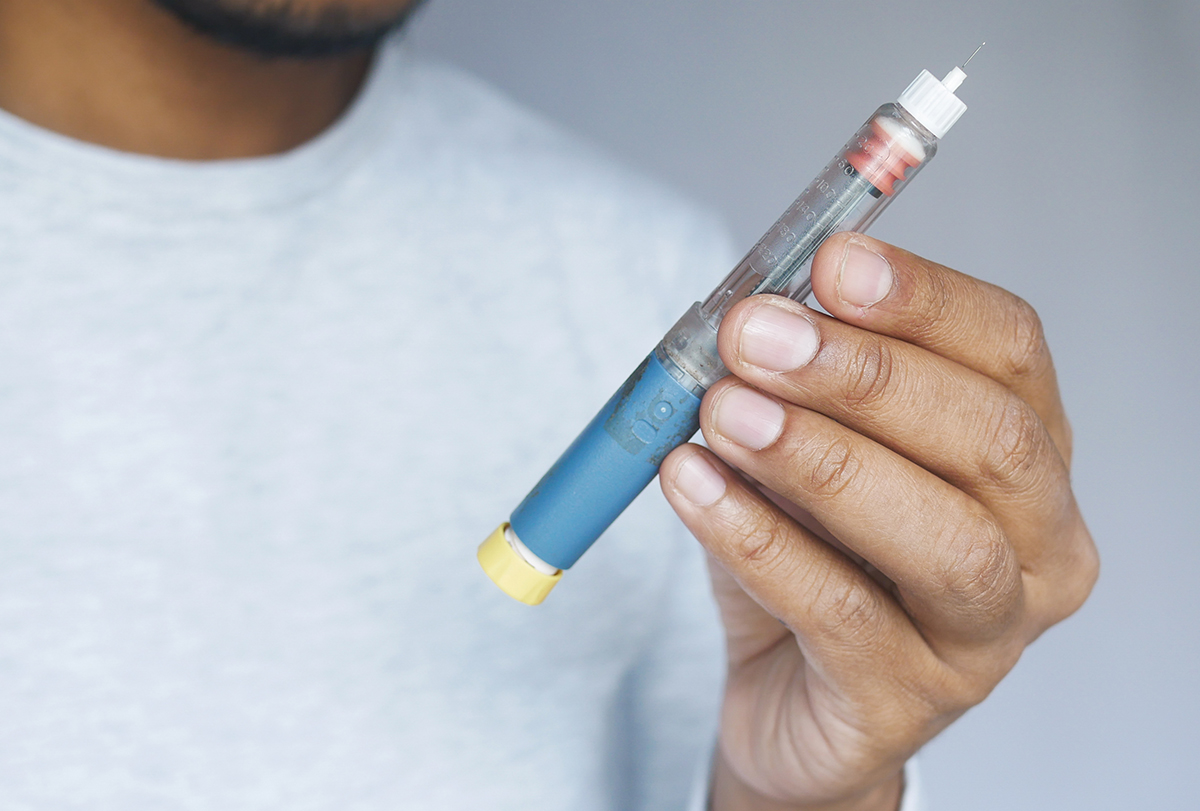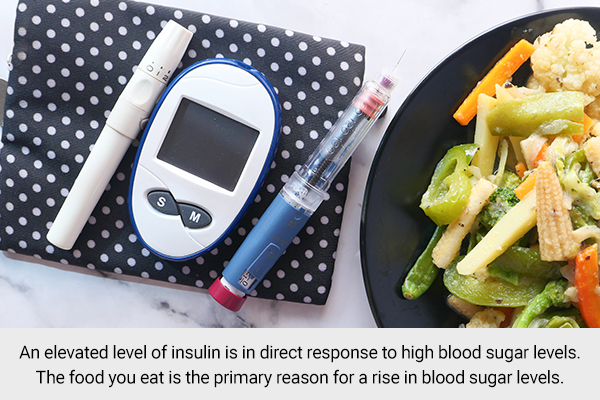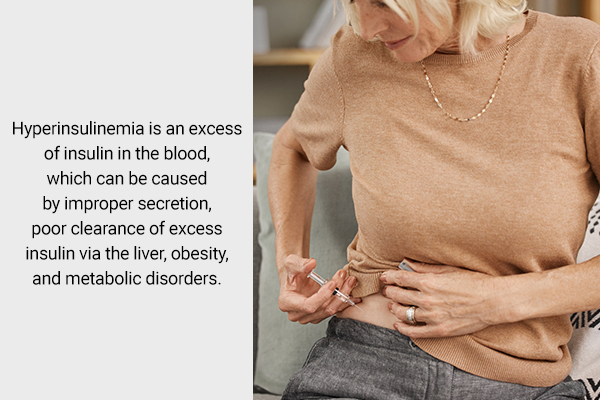In this article:
The pancreas is an organ most known for producing insulin. Insulin is primarily responsible for the uptake of glucose by the cells. This helps reduce blood sugar levels and keeps the body fueled and full of energy necessary for daily functions. (1)

However, an excess amount of insulin in the blood – a condition called hyperinsulinemia – has been shown to increase the risk of pancreatic cancer. (2)
Insulin and Pancreatic Cancer
The association of insulin with pancreatic cancer is not completely understood, but some studies suggest that excessive insulin in the blood can lead to the rapid multiplication of pancreatic cells, leading to mutation.
This mutation converts healthy cells to cancerous cells, which further multiply and spread. (2)
Who Are at Higher Risk?
The risk of developing pancreatic cancer from excessive insulin seems to be limited to patients who take insulin short term. This is largely due to the possible protective effect of antidiabetic medications such as metformin and lifestyle modifications.
Collective data from large studies have shown that those who took insulin for 3–10 years were at 20% more risk of developing pancreatic cancer than those who took it for more than 10 years. (3)
So far, studies have identified those with diabetes and those taking external insulin to manage their diabetes to be at a higher risk. Therefore, it is important to take insulin as prescribed by your doctor and not take excessive doses as well as to keep a check on the complications associated with diabetes.
Why Does Hyperinsulinemia Occur?
Hyperinsulinemia, which is the excess of insulin in the blood, can occur because of one of the following reasons: (4)
- Improper secretion or secretion of more insulin than is required by the body
- Poor clearance of excess insulin via the liver
- Obesity and metabolic disorders that cause elevated insulin due to high levels of blood glucose
How to Reduce Risk

An elevated level of insulin is in direct response to high blood sugar levels. The food you eat is the primary reason for a rise in blood sugar levels.
Therefore, experts recommend modifications to the diet and lifestyle to reduce the likelihood of elevated insulin levels. (5)
Expert Recommendations
Dietitians recommend consuming foods high in fiber, including whole grains, green leafy vegetables, lentils, and fruits such as apples, oranges, and berries. Ensure you consume a fist-sized amount of protein at each meal and include healthy fats such as coconut oil, nuts, and seeds.
However, it is also crucial to remember that diet and lifestyle changes are highly individualized and depends on overall health condition and illnesses. Consult a local dietitian to identify a plan suitable for you.
Hyperinsulinemia and Type 1 Diabetes
In type 1 diabetes, the body does not produce enough insulin needed to drive the blood sugar into cells. Such people need to use external or exogenous insulin via injections to prevent hyperglycemia.
According to studies, high levels of insulin (100–500 U) obtained from exogenous sources can cause insulin antibodies to form in the body as it cannot be cleared via the liver. This has been observed to cause hyperinsulinemia and hyperglycemia in the blood. (6)
It is important to note that not all people with type 1 diabetes have hyperinsulinemia. Developing a proper care plan along with your primary care provider is necessary.
Does Hyperinsulinemia Cause Weight Gain?
Yes. Hyperinsulinemia does cause weight gain similar to hyperglycemia.
Practical Takeaways

- Hyperinsulinemia is an excess of insulin in the blood, which can be caused by improper secretion, poor clearance of excess insulin via the liver, obesity, and metabolic disorders.
- To reduce the risk of hyperinsulinemia, experts recommend modifications to the diet and lifestyle, such as consuming foods high in fiber, protein, and healthy fats.
- In type 1 diabetes, the body does not produce enough insulin needed to drive the blood sugar into cells, and high levels of insulin can cause insulin antibodies to form in the body.
- Not all people with type 1 diabetes have hyperinsulinemia.
- Was this article helpful?
- YES, THANKS!NOT REALLY


